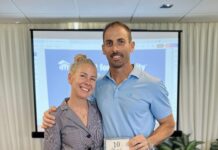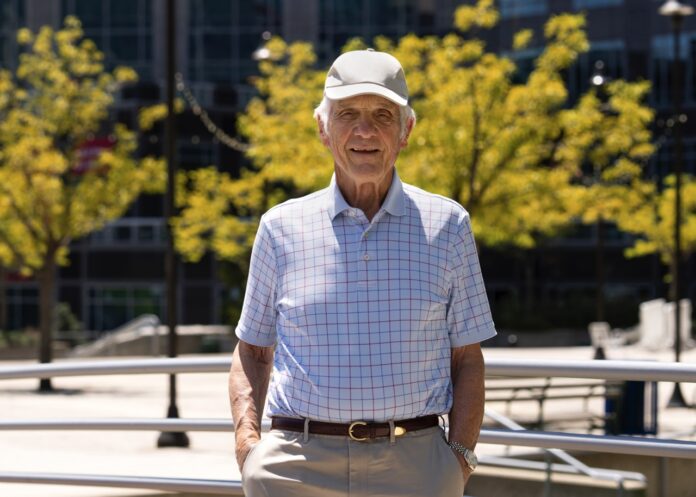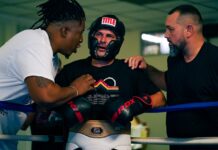If you are a client of mine or a friend or family member, you have heard me say, “Don’t let the old lady/man in.” It’s a phrase I’ve been using for the last 12 years since I started my personal training career.
I was astounded by how many times I’d recommend an exercise – knowing that it was safe and effective for this individual to do, and that they were more than capable of doing it – and the response would be “I’m too old for that.” What? No!
Or I’d casually hear on the gym floor, “Well, at my age I shouldn’t…” For crying out loud, stop with that nonsense.
My own mother, who is only 70 years old, does this all the time, and it has stopped her from doing so many things that she is more than capable of doing.
You see, what you repeatedly tell yourself to do or not do, eventually you begin to believe it, and your body follows suit.
In a world obsessed with youth, the pernicious effects of ageism often go unnoticed. This silent prejudice, which discriminates against individuals solely based on their age, extends its reach into our society’s mental and physical well-being. It’s high time we explore the detrimental impact of ageism – the discrimination against people on the basis of their age – on long-term health and how individuals can defy stereotypes to lead fulfilling lives.
Ageism has far-reaching consequences, and the negative stereotypes attached to aging can be incredibly damaging to one’s mental health. Older adults who experience ageism are more likely to suffer from depression and anxiety. The constant barrage of messages that suggest aging is synonymous with decline can lead to a self-fulfilling prophecy. Believing that one is incapable of achieving new goals or that they are a burden to society can become a harsh reality, impacting overall mental health.
Moreover, ageism affects physical health as well. The belief that older individuals are frail and feeble can discourage them from engaging in physical activities. This lack of exercise and activity can lead to a decline in muscle mass, strength and cardiovascular health. In contrast, research has shown that active older adults can maintain their physical health and even improve it in some cases.
To defy ageism and not let the old wo/man in, individuals can adopt several strategies. First, maintaining an active lifestyle is paramount. Examples like Ernestine Shepherd, who became the world’s oldest competitive female bodybuilder at the age of 81, prove that age is just a number. Regular exercise can improve physical strength, agility and overall health, dispelling the notion that aging equals frailty.
Lifelong learning is another powerful tool against ageism. The idea that older individuals can’t acquire new skills or knowledge is baseless. Many older adults pursue higher education or learn new languages, disproving stereotypes. This mental stimulation not only keeps the mind sharp but also enhances overall well-being.
Social engagement is crucial to combating ageism. Isolation often accompanies aging, but staying connected with friends, family and communities can provide emotional support and combat loneliness. Technology has made it easier than ever for older individuals to stay connected and engaged in society.
Ageism is a pervasive issue with profound effects on both mental and physical health. To counteract this prejudice, individuals must reject societal stereotypes and embrace an active, engaged and lifelong learning mindset. The examples set by resilient individuals who defy ageism underscore the possibilities and potential that come with age. By not letting the old wo/man in, we can lead happier, healthier, and more fulfilling lives, regardless of our birth date.
I’m going to leave you with this question: “If you didn’t know how old you were, how old would you be?”
References:
- Levy, B. R., & Macdonald, J. L. (2016). Progress on Understanding Ageism. Journal of Social Issues, 72(1), 5-25.
- Rejeski, W. J., et al. (2018). The lifestyle interventions and independence for elders (LIFE) pilot study: Design and methods. Contemporary Clinical Trials, 74, 61-67.
- Shephard, E. (2020). Ernestine Shepherd: 81-Year-Old Female Bodybuilder Shares Her Secrets to Staying Fit. Women’s Health Magazine.


























